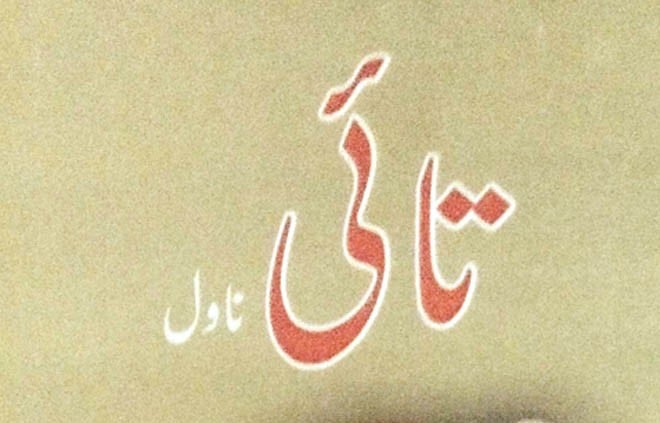
For a novel that starts on a strong feminist note, the ending is symbolically quite disappointing

Written in clean, crisp prose, Tai, a Punjabi novel opens with Hafeez and Sakina returning to their village. This is no joyous return as the couple had recently eloped because Sakina had been promised to an older man with a wheat threshing business, without her consent. On the other hand, Hafeez and Sakina were childhood sweethearts. Both were brought up by people other than their parents – Sakina by her maternal uncle who is an addict and owes money to the local wheat thresher, and Hafeez by his paternal uncle and aunt, taya and tai. Hafeez’s relationship with his uncle is far better than that of Sakina’s with hers, but out of reverence, he cannot refute his uncle on any matter, face-to-face.
By bringing the couple back to the village, the novelist Farzand Ali sets up a tough challenge for himself as he explores the quagmire of socioeconomic politics of life in the village. Right from the start, everyone is against the two lovers, who are now married to each other. The village’s traditions are steeped in patriarchy and class politics. There is the biggest landholder, the council of elders, respect for physical prowess, tradition of male friendship, and the honor for old age regardless of class and gender.
To Ali’s credit, he sets up these tensions by situating the narrative within Pakistan’s political history, to be precise, General Ayub Khan’s military take-over. And when Ali draws comparisons between the warring parties that are contesting ownership over Sakina’s body, he also highlights the confluence of interest between the military rulers of the country and the ruling elites of Pakistan’s economically depressed regions which artfully fools its constituencies.
Hafeez and Sakina are greeted by Hafeez’s aunt, his tai, who has always deemed her husband as someone with a weak spine. Her husband, perhaps, understands the dynamics of his village better than his wife and thus knows he is powerless in front of the collective might of the village, both physically and psychologically.
He proves to be correct when Malik Riaz, the biggest landowner of the village, feigns impartiality by calling the village’s council of elders to decide whether Sakina should be returned to her uncle, and by default to her ‘rightful’ husband. The fact that by the time the council is convened, Sakina and Hafeez already have a son, is of little consequence. It is soon revealed that the council is not impartial; Riaz has secretly already fixed up things so that Sakina has to return to her uncle.
When the crowd reaches Hafeez’s uncle’s house, however, his wife, the tai stands in the way and taunts the men to cross her threshold. No one dares to cross her.
Hafeez, who enjoys the friendship of three loyal and well-built men, does not fear physical pressure. But the council’s verdict breaks his spirit. Shocked, and fearing further retaliation toward his uncle and aunt by the villagers, he abandons his family.
Hafeez’s failure to stay is reflective of the author’s failure to keep him there, and face the music. In his absence, when tai and her grand-nephew go fetch water, Sakina is kidnapped by the wheat thresher’s people. From this point on, the novel cannot find its centre, it drowns in the sentimental soup of cultural criticism.
Three-fourth of the novel is well-crafted, with measured attention to language, character development, the pace of the narrative, and the chemistry between characters and their situations. Ali’s exploration of patriarchy and limits of indigenous feminism are nuanced. But it may be that Ali bit off more than he could chew. Although he showed courage in creating a female character who eloped, and then was brave enough to return and restart her life despite the risk, Ali could not envision a narrative where Sakina is allowed choices. Before she was a captive in Hafeez’s house, protected by her husband’s tai who is yet another side of our patriarchal (and feudal) system. Later she is a captive of her kidnappers. She languishes and dies, and what’s worse at least from a literary point of view is that the author brings Hafeez to the edge of the village from where he witnesses Sakina being lowered into her grave.
Perhaps Ali’s extreme pessimism has a point, and possibly anyone who’s lived through the dark ages that Ziaul Haq ushered upon Pakistan can only imagine women withering away. But Ali’s grip is further weakened as the novel ends with tai passing after successfully raising Sakina’s son. Leaving us with the message that as long as the boys are okay, everything is okay. For a novel that starts on a strong feminist note, the ending provides a disappointing symbolism of women’s role in society.